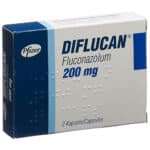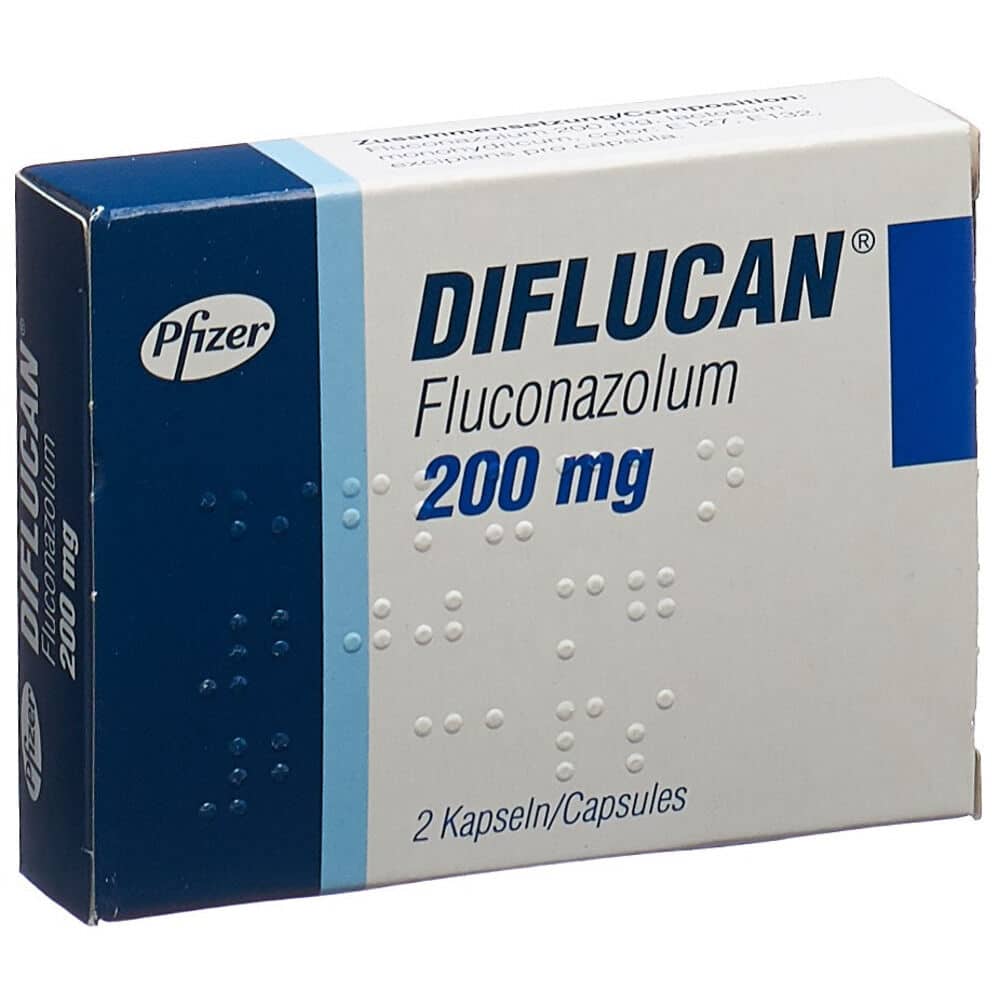Diflucan
£12.00 – £290.00
Active Ingredient : Fluconazole
Available Strength : 50mg, 150mg, 200mg

Diflucan
£12.00 – £290.00Request a Call Back
- Delivery & Return
Delivery
We ship domestically to all 50 states in USA. We also ship to UK,Australia and European Union. All US to US delivery takes 5 to 7 working days. Uk , Australia and EU orders takes 8-10 working days . All US to US orders are shipped with a USPS tracking number.Help
Give us a shout if you have any other questions and/or concerns. Email: [email protected]Click to chat with us
- Ask a Question

Diflucan
£12.00 – £290.00Ask a Question
Diflucan (Fluconazole) in Treating Fungal Infections
Introduction
Diflucan, also known as Fluconazole, stands as a potent antifungal medication widely used in the treatment of various fungal infections. This comprehensive guide aims to provide insights into the uses, benefits, and best practices associated with this medication. Whether you’re seeking information about fungal infections or exploring treatment options, understanding the potential benefits and optimal usage of this medication is essential for effective management.
Understanding Diflucan (Fluconazole)
Diflucan belongs to the class of medications known as triazole antifungals. It works by inhibiting the synthesis of ergosterol, a crucial component of fungal cell membranes, thereby disrupting fungal growth and replication. Diflucan demonstrates broad-spectrum activity against various fungal pathogens, making it a versatile option for treating fungal infections.
Uses of Diflucan
1. Vaginal Yeast Infections
This medication is commonly prescribed for the treatment of vaginal yeast infections (vulvovaginal candidiasis), providing rapid relief from symptoms such as itching, burning, and abnormal discharge.
2. Oral Thrush
For oral thrush (oral candidiasis), Diflucan offers an effective solution by eliminating the fungal overgrowth in the mouth, alleviating discomfort and restoring oral health.
3. Systemic Fungal Infections
In cases of systemic fungal infections, such as cryptococcal meningitis or candidemia, Diflucan demonstrates efficacy in eradicating fungal pathogens from the bloodstream and other organs, thereby preventing further complications.
Best Practices for Using Diflucan
Optimizing the benefits of Diflucan while ensuring safety involves adhering to best practices.
1. Adherence to Prescribed Dosages
Strict adherence to the prescribed dosage, as directed by healthcare providers, is crucial for effective treatment. Consistency in dosing aids in eradicating fungal infections and preventing recurrence.
2. Duration of Treatment
Complete the full course of Diflucan treatment, even if symptoms improve before the medication is finished. Premature discontinuation may lead to incomplete eradication of the fungal infection and potential recurrence.
3. Consultation with Healthcare Providers
Inform healthcare providers about any existing medical conditions, allergies, or medications being taken, as they may affect the choice and dosage of Diflucan. Pregnant or breastfeeding individuals should seek professional guidance before using this medication.
Potential Side Effects and Precautions
While generally well-tolerated, users should be aware of potential side effects and take necessary precautions.
1. Common Side Effects
Mild and transient side effects of Diflucan may include nausea, headache, or abdominal discomfort. These effects typically subside on their own, but any persistent or severe symptoms should be reported to healthcare providers.
2. Rare but Serious Side Effects
Rare but serious side effects of this medication may include liver toxicity or allergic reactions. Seek immediate medical attention if experiencing symptoms such as yellowing of the skin or eyes, persistent nausea or vomiting, or difficulty breathing.
3. Drug Interactions
Inform healthcare providers about any concurrent medications being taken, as Diflucan may interact with certain drugs, including blood thinners or anticonvulsants, leading to potential complications.
Conclusion
In conclusion, Diflucan (Fluconazole) stands as a valuable treatment option in the management of fungal infections, offering efficacy, convenience, and safety. Armed with a clear understanding of its uses, benefits, and best practices, individuals can confidently incorporate this medication into their treatment regimen. By adhering to prescribed dosages, completing the full course of treatment, and consulting healthcare providers as needed, users can optimize the benefits of this medication, achieving successful resolution of fungal infections and restoring overall health and well-being.
OTHER NAMES FOR THIS MEDICATION:
Based on 0 reviews
|
|
|
0% |
|
|
|
0% |
|
|
|
0% |
|
|
|
0% |
|
|
|
0% |
- ADHD 1
- Allergy 11
- Antacid 8
- Anti Anxiety 7
- Anti-alcohol 0
- Anti-parasite 0
- Antiarrhythmic 0
- Antibiotics 28
- Antidepressants 25
- AntiDiabetic 9
- Antiepileptic 1
- Antifibrotic 0
- Antifungal 3
- Antihistamine 1
- Antiinflammatory 2
- Antimalaria 2
- Antipsychotic 1
- Antiviral 4
- Asthma 3
- Blood Pressure 35
- Cancer 0
- Cholesterol reduce 6
- Diuretics 0
- Erectile Dysfunction 13
- Gastrointestinal 11
- General Health 69
- Hair Loss 0
- Hiv Aids 5
- Hyperuricemia 0
- Hypotensive 0
- Kid 0
- Men 0
- Men's health 0
- Migraine 0
- Pain Relief 20
- Parkinson disease 0
- Premature Ejaculation 0
- Skincare 0
- Steroids 0
- Stop Smoking 0
- Vitamins 0
- Weight Loss 0
- Women's health 0



Reviews
There are no reviews yet.